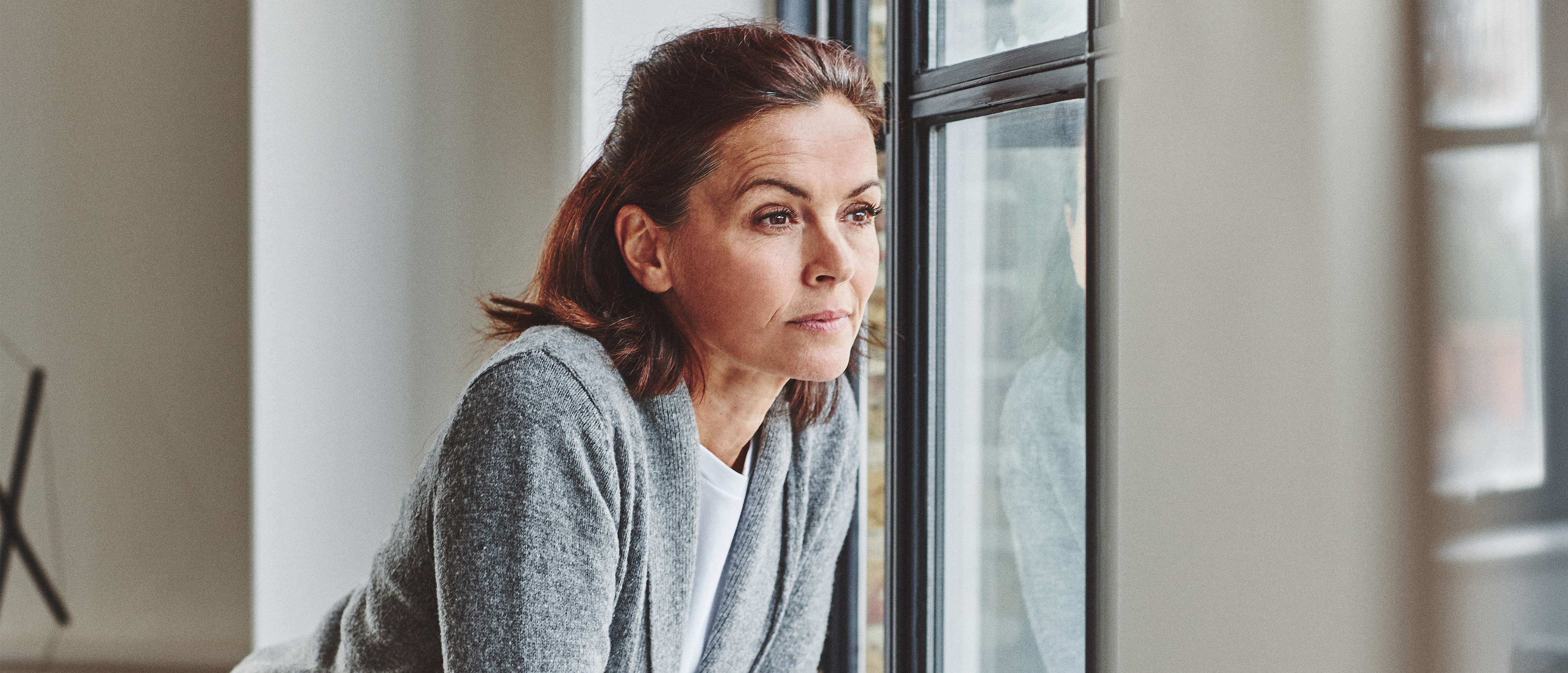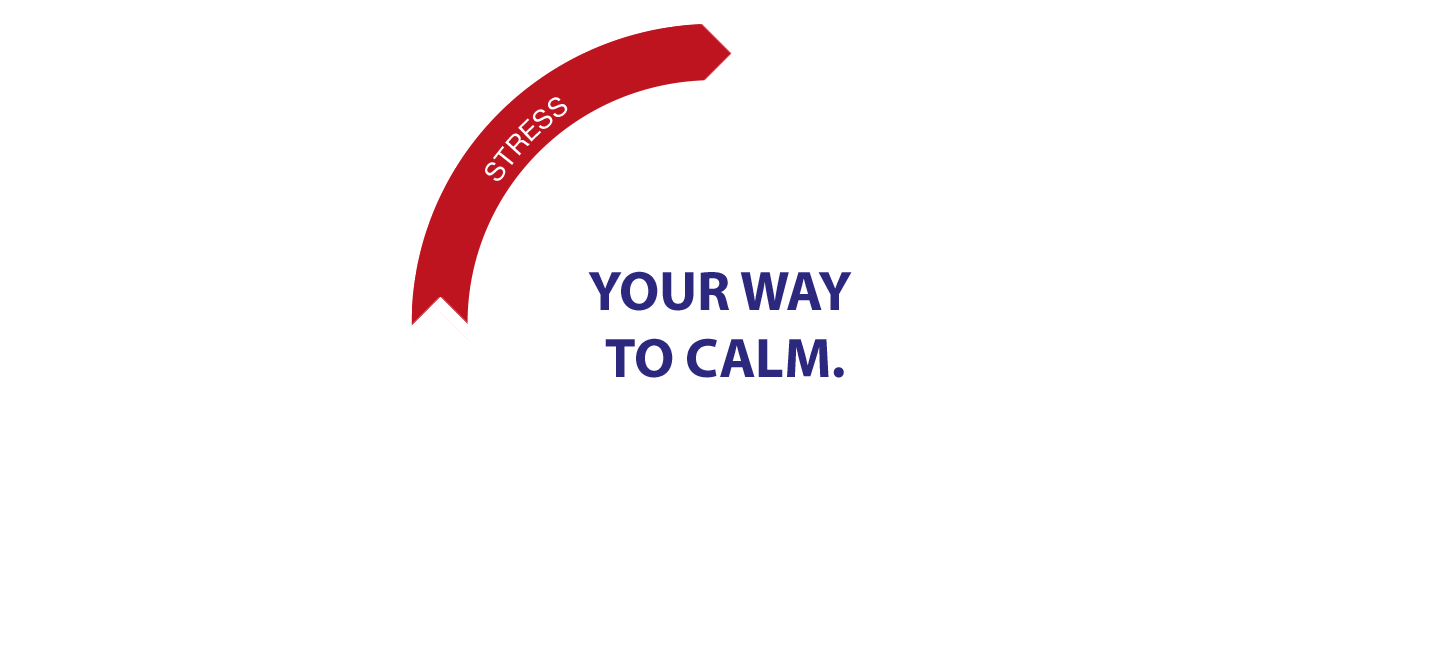
Stress – The double-edged sword
Everyone deals with stress. And stress comes in many shapes and sizes – pressure at work, family responsibilities, or money troubles. These are the most common triggers. However, not all stress is immediately bad. Stress can be invigorating and energizing, but too much stress occurring frequently and over a longer time is a physical, mental, and emotional burden. Stress can affect all parts of your life, including your emotions, behaviors, thinking ability, and physical health.
Stress involves two-way communication between the nervous system, directed by the brain and the cardiovascular, immune, and other systems. The central nervous system (CNS) controls the “fight or flight” response. It all starts in the brain with the hypothalamus, which triggers the adrenal glands to release the stress hormones adrenaline and cortisol. They speed up the heartbeat and send blood rushing to where it is needed the most – muscles, heart, and other vital organs. These stress hormones help to cope with the situation. Once the crisis has passed, the hypothalamus tells all systems to go back to normal. However, if the stressor continues and becomes an ongoing or repetitive strain, it can put anyone’s health at serious risk.
Common stress symptoms
Stress is a normal part of everyday life, and the fundamental stress response has accompanied humankind since the very beginning. Stress hormones are released to mobilize the body’s energy stores for immediate use, and energy is diverted to the brain and skeletal muscles. In the short term, these physical effects are not harmful and allow the body to respond quickly to perceived or actual threats in the environment. But like many things in life, too much of something good can be harmful. Stress disorders have become a critical public health issue, with effects that significantly impact people living with these conditions, the healthcare system, and society.
Stress is also associated with physical consequences, particularly for the nervous and cardiovascular systems. Stress and sleeplessness can lead to poor physical health. One large-scale study, performed in 24 countries worldwide and including more than 17,000 young adults, found that those sleeping for less than 6 hours per night were almost twice as likely to have poor self-rated health than those who slept for 7–8 hours.1 Stress has been defined as an emotional experience associated with nervousness, tension, and strain, particularly in the context of work and home stress. People with stress and related disorders (such as anxiety and insomnia) have impaired physical and mental functioning, more lost working days, and poorer performance at work than individuals without stress.

There’s a correlation between emotional and physical states regarding stress. In other words: stress affects the mind and body. If the stressful situation lasts longer, the mind will be the first to react. Nervous restlessness starts to settle in, while tension and anxiety gradually gain the upper hand, usually leading to sleep disorders. The cortisol levels in the body are permanently high, which causes disturbed sleep and weakens the immune system. The body can no longer react appropriately and starts to fall into a vicious circle of restlessness, tension, and related sleep disorders. Signs of anxiety and other stress symptoms start to show. Stress is associated with various emotional, mental, and physical effects that influence how a person thinks and behaves. Because individuals handle stress differently, the exact combination of symptoms tends to vary from person to person.
Here are the most common stress symptoms:
What causes stress?
Stress may be caused by external environmental factors (e.g., major life changes, unpredictable events, or excessive daily hassles including workplace challenges) or internal factors (e.g., fears, uncertainties, or psychological issues). When a continuous strain starts to affect the body and triggers anxiety and related sleep disorders, it’s usually a combination of many causes. Sources of stress aren’t only physically exhausting but emotionally and mentally draining.
Here are some common stress causes:
However, the personal emotional situation is the deciding factor. It is easier to handle demanding situations better in a good mood. But this also goes the other way. With a negative, pessimistic approach, that situation might be too much to handle. Then one thing leads to another, and even the slightest disruptions cause tension and nervousness. The frequency and consistency of stress are also significant factors.
What helps against stress?
It is impossible to avoid stressful times altogether because it is part of life. But there are simple measures that can help to cope with pressure, strain, or possibly nervousness. The ideal solution is to stop the stressors or the factors that cause these feelings. When dealing with stress, this is often easier said than done. There are healthy ways to handle the stress that help to recover.

Relaxation
Taking time for relaxation helps manage stress overall and protects the body from its effects. There are a variety of techniques, from deep breathing exercises and meditation to biofeedback and progressive muscle relaxation.

Exercise
In addition to the well-known physical health benefits, exercise can be a powerful stress reliever. Exercise, ideally outdoors with fresh air, helps overcome anxiety, reduces stress, and improves moods.

Healthy diet
The right nutrition is crucial: Consuming a healthy regular, well-balanced diet can help to combat stress and give energy for handling daily tasks.
The World Health Organization classified stress as the health epidemic of the 21st century.2 However, there are currently no suitable, evidence-based guidelines for managing problems and disorders related to stress, and there remains a strong medical need for such treatments. In contrast, international guidelines address sleep disorders, and there are several recommended treatments.
Cognitive Behavioral Therapy (CBT)
Treating stress symptoms such as nervousness, restlessness, anxiety, and insomnia remains challenging due to their complexity and various origins. European and US guidelines recommend Cognitive Behavioral Therapy (CBT) as a first-line treatment for insomnia and some anxiety disorders. CBT is a form of psychological treatment demonstrated to be effective. The therapy can include sleep hygiene, relaxation training, stimulus control therapy, sleep restriction therapy, and cognitive therapy. CBT is based on the concept that it’s not simply the life events that cause stress but also the thoughts concerning these events. It rests on the premise that thoughts, feelings, and actions are interconnected.
Pharmacological approach
There are relatively few recommended short-term pharmacological treatments for stress, nervous restlessness and resulting insomnia. An increasing number of people seek help from pharmacological stress-relieving medications. However, such medications can be problematic due to unwanted side effects, especially for long-term applications. These drugs are effective but associated with unwanted daytime sedation (the so-called “hangover effect”), cognitive impairment, and the development of tolerance, leading to reduced effectiveness. Some of them can also lead to addiction. Benefits may not outweigh disadvantages. A multidisciplinary approach is necessary for treating chronic stress and related sleep disorders because drug therapies are often unsatisfactory and are associated with adverse effects.
Natural medicine approach
Natural medications are widely used as mild and safe alternatives to conventional medicines. Several single herbal preparations have been evaluated for nervous restlessness, resulting insomnia and related conditions, such as anxiety. Clinical studies have shown that natural medicine effectively treats stress-related disorders without serious adverse effects, such as addiction, daytime fatigue, or concentration deficits. Natural medicines for nervous restlessness and sleep disorders include single herbal preparations; those currently approved in Europe are valerian, hops, Melissa leaf, passionflower, oats, lavender oil, and St. John’s Wort. Valerian is the herbal product most commonly used to treat nervous restlessness and sleep disorders in both the US and Europe. There is some evidence to suggest that valerian might improve sleep quality. However, valerian showed a gradual onset of action – in some studies, the beneficial effects of valerian were not seen until after 2-4 weeks – residual daytime sedation has been observed at a high dose, and long-term safety data is lacking.3 Studies show that other natural medications are more effective in treating nervousness, restlessness, and resulting insomnia than valerian. Other natural ingredients such as purple passionflower, common oats, coffee plant, and valerianate of zinc are traditionally well-known to affect stress and sleep disturbances.
| Known activities of Neurexan® components when used individually | |
|---|---|
| Component | Main indications |
| Passiflora incarnata (pure passion flower) |
|
| Avena sativa (common oats) |
|
| Coffea arabica (coffee plant) |
|
| Zincum isovalerianicum (valerianate of zinc) |
|
Heel natural medicines
1. Steptoe A, Peacey V, Wardle J. Sleep duration and health in young adults. Arch Intern Med. 2006;166(16):1689-1692. doi:10.1001/archinte.166.16.1689
2. Fink G. Stress: concepts, definition and history. In: John Stein (eds), Reference Module in Neuroscience and Biobehavioral Psychology. Elsevier; 2017: 1–9.
3. Beaubrun G, Gray GE. A review of herbal medicines for psychiatric disorders. Psychiatr Serv. 2000;51(9):1130-1134. doi:10.1176/appi.ps.51.9.1130
2. https://www.mentalhealth.org.uk/
3. https://www.mayoclinic.org/
4. https://www.health.harvard.edu/
6. Shiel WC. Medical Definition of Stress. MedicineNet. 2016.
7. Kalia M. Assessing the economic impact of stress--the modern day hidden epidemic. Metabolism. 2002;51(6 Suppl1):49-53. doi:10.1053/meta.2002.33193
8. Han KS, Kim L, Shim I. Stress and Sleep Disorder. Exp Neurobiol. 2012;21(4):141-150. doi:10.5607/en.2012.21.4.141
9. Schneiderman N, Ironson G, Siegel SD. Stress and health: psychological, behavioral, and biological determinants. Annu Rev Clin Psychol. 2005;1:607-628. doi:10.1146/annurev.clinpsy.1.102803.144141
10. Riemann D, Baglioni C, Bassetti C, et al. European guideline for the diagnosis and treatment of insomnia. J Sleep Res. 2017;26(6):675-700. doi:10.1111/jsr.12594
11. WHO. Guidelines for the Management of Conditions Specifically Related to Stress. Assess Manag Cond Specifically Relat to Stress mhGAP Interv Guid Modul (version 10). 2013:1-273. http://www.ncbi.nlm.nih.gov/pubmed/24649518.
12. Sarris J, Byrne GJ. A systematic review of insomnia and complementary medicine. Sleep Med Rev. 2011;15(2):99-106.doi:10.1016/j.smrv.2010.04.001
13. Hübner R, Van Haselen R, Klein P. Effectiveness of the homeopathic preparation Neurexan compared with that of commonly used valerian-based preparations for the treatment of nervousness/restlessness – an observational study. ScientificWorldJournal. 2009;9:733-745. doi:10.1100/tsw.2009.95
14. Waldschütz R, Klein P. The homeopathic preparation Neurexan. vs. valerian for the treatment of insomnia: An observational study. ScientificWorldJournal. 2008;8:411-420. doi:10.1100/tsw.2008.61
15. Herrmann L, Vicheva P, Kasties V, Danyeli LV, et al. (2020). fMRI Revealed Reduced Amygdala Activation after Nx4 in Mildly to Moderately Stressed Healthy Volunteers in a Randomized, Placebo-Controlled, Cross-Over Trial. Scientific Reports 2020;10:3802. https://doi.org/10.1038/s41598-020-60392-w
16. Chand T, Alizadeh S, Jamalabadi H, Herrmann L, et al. (2021). EEG revealed improved vigilance regulation after stress exposure under Nx4 – A randomized, placebo-controlled, double-blind, cross-over trial. IBRO Neurosci Rep. 2021;11:175-182. https://doi.org/10.1016/j.ibneur.2021.09.002
17. Mayer K, Krylova M, Alizadeh S, Jamalabadi H, van der Meer J, Vester JC, Naschold B, Schultz M and Walter M (2021). Nx4 Reduced Susceptibility to Distraction in an Attention Modulation Task. Front. Psychiatry 2021;12:746215. doi: 10.3389/fpsyt.2021.746215. https://www.frontiersin.org/articles/10.3389/fpsyt.2021.746215/full
18. Herrmann L, Kasties V, Boden C, Li M, Fan Y, Van der Meer J,Vester JC, Seilheimer B, Schultz M, Alizaded S, and Walter M (2022). Nx4 attenuated stress-induced activity of the anterior cingulate cortex—A post-hoc analysis of a randomized placebo-controlled crossover trial. Hum Psychopharmacol Clin Exp. 2022;e2837. https://doi.org/10.1002/hup.2837
Spascupreel® in your country
Please choose your country. You will leave this website and will be redirected to your local website to get more information about Spascupreel®.















